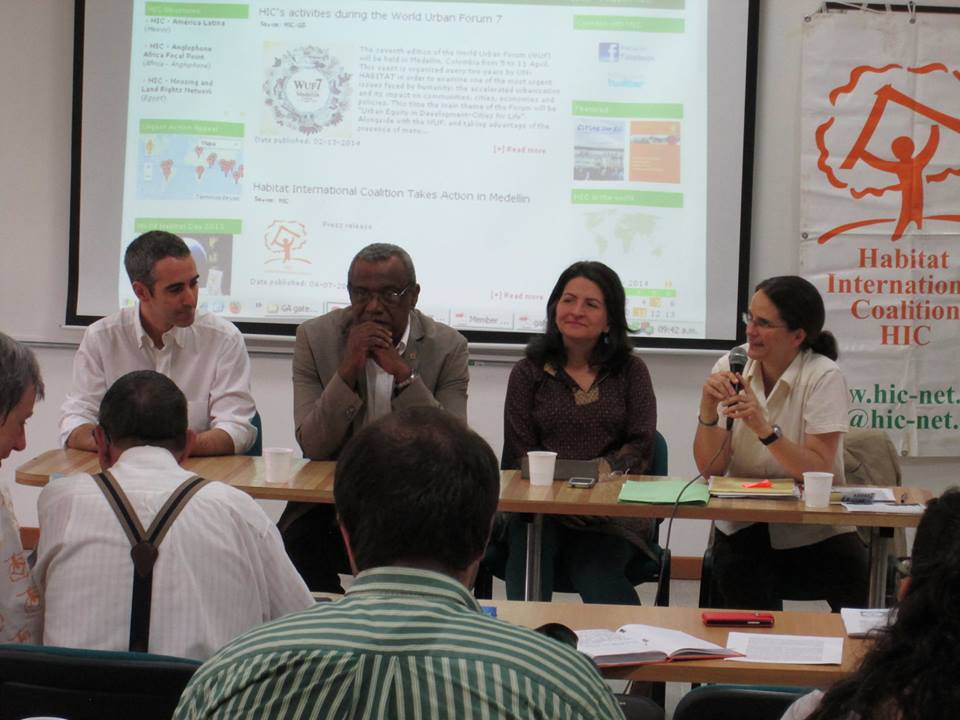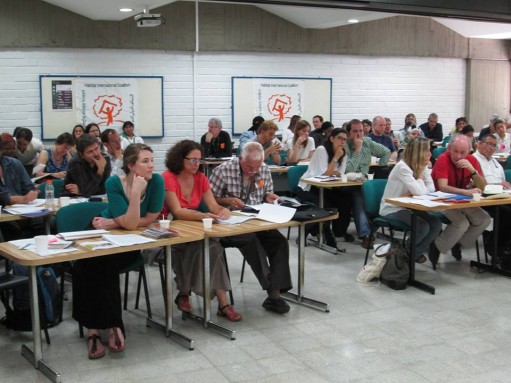
Monday April 7th was my first day at the 7th UN-Habitat World Urban Forum in Medellin.
This is quite a special edition of WUF, as it is building up to the Third
United Nations Conference on Housing and Sustainable Urban Development, Habitat
III. But instead of heading to the conference centre, I ended up going to the
Habitat International Coalition general assembly at the department of
Architecture of the National University of Colombia. And it was totally worth
it!
The day started with reporting by
representatives from representatives from different regions and working groups
updating HIC members and participants of the various activities of the network.
This included the launch of the impressive book called ‘La vivienda, entre el
derecho y la mercancia: las formas de propiedad en América Latina’,
which reflects on the model of housing production of Federación Uruguaya de
Cooperativas de Vivienda por Ayuda Mutua (FUCVAM) and its applicability in
other Latin American countries.
Then the various activities that HIC
will take part inside and outside the World Urban Forum were introduced. The
event closed with a discussion of future projects and alliances, which turned
into a really interesting debate on the ‘social production of habitat’ and the
need to continue documenting and learning from the activities of HIC members in
this field.

Apart from great discussions, HIC
also produced a powerful document on its expectations of Habitat III. Among
other things, the document highlights that ‘urbanization is not inevitable’,
calling for ‘equitable, ethical and people-centered development planning’ which
supports for ‘social production of habitat’ and recognizes the ‘social function
of property, prioritizing commons and collective goods over private interests’.
These are crucial issues to bring to the discussions around the Habitat III
agenda, which show a clear and constructive mode of engagement of HIC in this
process (some of these points are articulated in the following statement at the
HIC website.
Some of the other DPU highlight of
this first day of WUF includes the televised one-hour panel discussion in which
Julio Davila shared the floor with Architect Martín Pérez and scholar Fernando
Viviescas. They discussed the principles of a sustainable and equitable
city using examples from Medellin, Singapore, Bangalore, Accra and Nairobi. The
panel will be aired at Canal UNE you tube channel.
*
To read this article from the original source, click here.